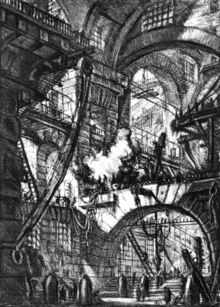1750
Contenido keyboard_arrow_down
1750 (MDCCL) was a common year beginning on a Thursday according to the Gregorian calendar.
It is the year 1750 of the Common Era and anno Domini, the year 750 of the second millennium, the year 50 of the 18th century, and the first year of the 1750s.
Some historians consider the year 1750 to be the beginning of the Industrial Age.
Events
- January 13: The Madrid Treaty was signed, which solved the problem with Portugal about the territories in America. Seven villages of the Eastern Missions pass to Portugal in exchange for Colonia del Sacramento.
- 25 February (Julian calendar): In Britain, Count Chesterfield begins the process of adopting the Gregorian Calendar. The kingdom will adopt such a calendar on 1 January 1752 (21 December of the Julian Calendar).
- March 2nd: The Holy Trinity is launched in Manila.
- March 8 (Julian Calendar): A earthquake occurs in London, England. It was the second of the year next to another that happened exactly a month before.
- March 15: Presents his report in Mexico City, the visitor of the provinces and former governor of the province of Sonora and Sinaloa José Rafael Rodríguez Gallardo.
- June 24: The British Parliament approves the Iron Law, designed to curb the development of colonial manufacturing in competition with the national industry. Taxes on the import of raw iron are eliminated to give British manufacturers additional material. However, this does not prevent the flourishing of the industry in North America. By 1775, the Thirteen Colonies managed to overcome England and Wales in iron production, becoming the third world iron producer.
- July 31: José I of Portugal begins his reign. The new king designates the Marquis of Pombal as his general minister, who then strips the Inquisition of his power.
- September 30: Sismo in Northampton, England.
- October 5: Spain and the United Kingdom sign a treaty that ends (temporarily) with hostilities on the American continent.
- November 18: The Westminster Bridge is officially opened.
No date
- "James Gray" reveals his sex to his fellow Royal Marines.
- John Cleland publishes Fanny Hill, or The Memoirs of a Woman of Pleasure.
- From the army of Ahmad Shah Bahadur, withdrawing from Persia, it is said that he lost nearly 18,000 men for the cold in one night, in what is now Herāt, Afghanistan.
- The kingdom of Cazembe is separated from the Lunda Empire (Zaire).
- Beginning of the war between the Spanish settlers and the Guaraní natives of Paraguay, they lose in 1756.
- Spain has a population of 9 300 001.
- Karim Jan Zand consolidates his power in southern Iran, establishing his capital in Shiraz.
- The Qing Dynasty of the Chinese Empire invades the Toungoo Dynasty Burma, but they are repelled by the mon forces. However, this does not stop the decline of the kingdom, which collapses and fragments two years later.
Art and literature
- Prisons - Giovanni Battista Piranesi
- March 5: The first Shakespearean theatre production takes place in New York -- an alternative version Ricardo III.
- 6 October: Denis Diderot writes the Prospectum, a project on which the later L'Encyclopédie.
- Tobias Smollett travels through France, collecting material for his Peregrine Pickle.
- Weekly meetings for taxpayers L'Encyclopédie They start, in the hall of Holbach's baron.
- The Rambler is founded by Edward Cave; it lasted 208 series, and is mainly written by Samuel Johnson.
- Jean-Jacques Rousseau wins Dijon Academy Award for his Discourse on the Arts and Sciences (Science and Arts Treaty).
- Fanny Hill - John Cleland.
- Tom Jones - Henry Fielding.
- La Bottega di Caffe - Carlo Goldoni
- The Life of Harriot Stuart - Charlotte Ramsay Lennox
- Odas - Lomonósov
- Clarilowe - Samuel Richardson.
- Oreste - Voltaire
Music
- Farinelli is appointed knight by King Fernando VI of Spain.
- Leopold Mozart - Partite for violin, cello and bass "The frog"
- Opera
- Johann Friedrich Agricola – Il filosofo convinto in amore
- William Boyce - The Roman Father
Science and technology
- Thomas Wright suggests that the Milky Way is a disk-shaped star system with the solar system near the center.
- The Copley Medal for George Edwards.
- Johann Breitkopf prints musical scores using mobile lyrics in Leipzig (see Breitkopf & Härtel).
- American Benjamin Franklin develops the pararrhoea (1750).
Births
- March 28: Francisco de Miranda, Venezuelan revolutionary (f. 1816)
- 13 May: Lorenzo Mascheroni, Italian mathematician (f. 1800)
- 18 August: Antonio Salieri, Italian composer (f. 1825)
Deaths
- July 28: Johann Sebastian Bach, great German composer.
- 31 July: John V of Portugal, emperor of Portugal (n. 1689)
Contenido relacionado
Chile's flag
North Macedonia
Old Town of Leon
Más resultados...
